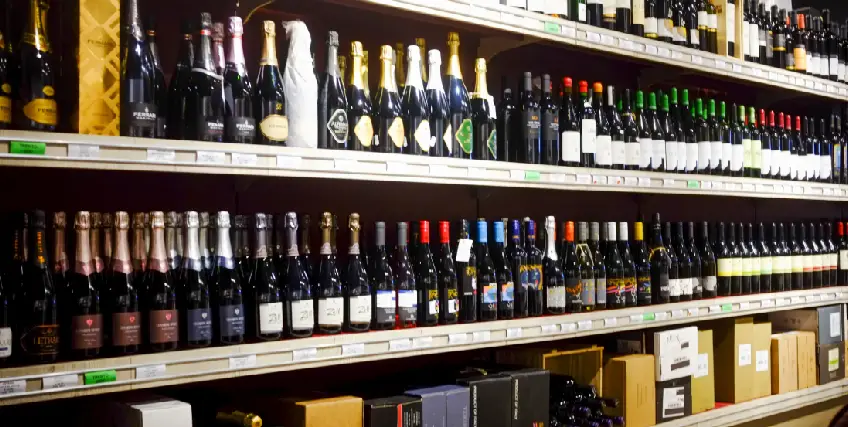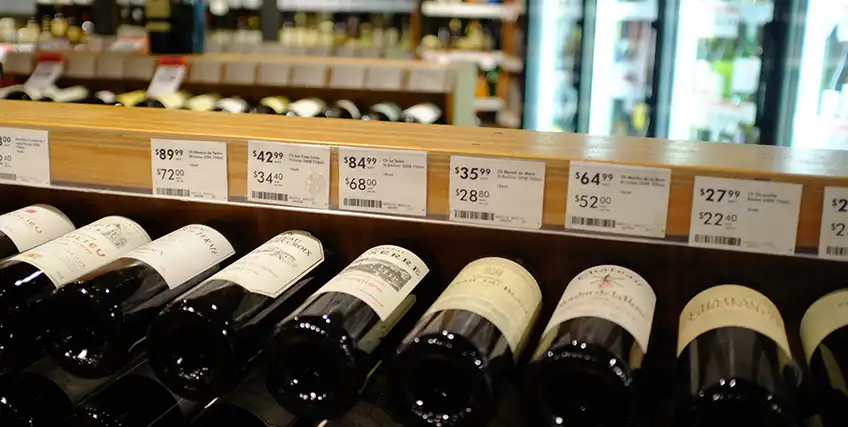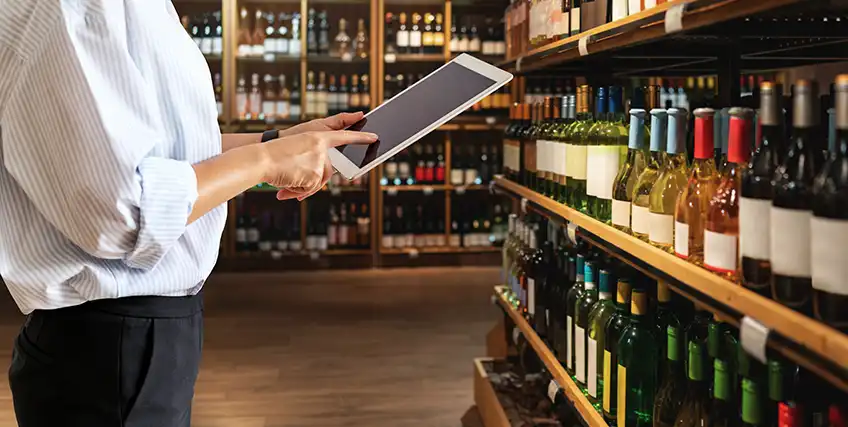How to start wholesale liquor business
February 18, 2025 | Last Updated on: February 19, 2025

How to Start a Wholesale Liquor Store: A Comprehensive Guide
Starting a wholesale liquor store can be an exciting and profitable venture if done correctly. The wholesale liquor distribution industry plays a pivotal role in the supply chain, serving as an intermediary between alcohol producers (manufacturers and distillers) and retailers, such as liquor stores, bars, and restaurants. However, it’s an industry laden with complex regulations, distribution channels, and fierce competition. To succeed, you’ll need a solid understanding of how the industry operates, a well-thought-out business plan, and the ability to navigate legal and operational challenges.
In this comprehensive guide, we’ll explore each critical step to help you launch and sustain a successful wholesale liquor store. We’ll discuss how to understand the liquor industry, comply with legal regulations, get a liquor license application, create an actionable business plan, source products, build your distribution network, and market your services. By the end of this guide, you should have a clear path to enter and grow your wholesale liquor business.
Step 1: Understanding the Liquor Industry
Before diving into the logistics and regulatory aspects of starting a wholesale liquor business, it’s crucial to understand the liquor industry’s basic structure and its core players. A thorough grasp of the industry dynamics will help you make informed decisions and plan strategically for starting a wholesale liquor store.
Key Players in the Liquor Industry
1. Manufacturers and Distillers: These are the producers of alcoholic beverages, including breweries, distilleries, and wineries. They are responsible for creating the products you’ll distribute. Manufacturers range from large multinational corporations (e.g., Diageo, Pernod Ricard) to smaller craft producers.
2. Distributors: These companies buy large quantities of alcohol directly from manufacturers and sell it to wholesalers, retailers, and sometimes directly to consumers in some regions. They are often responsible for managing logistics, warehousing, and sales of alcoholic products.
3. Retailers: These businesses sell alcohol directly to consumers, including liquor stores, bars, restaurants, and event venues. As a wholesale distributor, retailers will be your primary clients.
4. Wholesalers: As a wholesaler, your role is to purchase alcohol in bulk from manufacturers or distributors and sell it to retailers in larger quantities at a markup. Wholesale liquor businesses usually specialize in specific product types (e.g., beer, wine, spirits) or offer a wide selection.
Industry Trends
- Craft Alcohol Movement: Over the past decade, craft beer, craft spirits, and artisanal wines have gained popularity. Consumers are increasingly looking for locally produced, unique, and high-quality alcoholic beverages, which presents opportunities for wholesalers to focus on these niche products.
- Sustainability: Many consumers now prefer sustainable and eco-friendly products. The growing demand for organic wines, sustainably sourced spirits, and products with eco-friendly packaging can influence the products you offer as a wholesaler.
- Online Liquor Sales: E-commerce for alcohol is growing, especially post-pandemic. Many consumers now prefer purchasing alcohol online, including through subscription services. However, online sales require compliance with specific legal and shipping restrictions that you will need to navigate.
Step 2: Legal and Regulatory Requirements
The liquor industry is one of the most regulated sectors globally, and understanding the laws governing alcohol distribution is crucial for running a legitimate and successful business. The legal framework you must follow includes federal, state, and local laws.
1. Obtaining the Necessary Licenses and Permits
- Federal Licensing: In the United States, alcohol distribution is regulated by the Alcohol and Tobacco Tax and Trade Bureau (TTB). The TTB requires wholesalers to obtain a basic permit before engaging in the wholesale distribution of alcohol. This federal license is crucial to legally sell alcohol to retailers.
- Liquor License Application by State: Each state has its own liquor laws. Some states operate under a “three-tier” system, where alcohol is distributed through manufacturers, wholesalers, and retailers. Others may allow direct sales from manufacturers to retailers (bypassing wholesalers). You will need to apply for the appropriate state-level licenses to sell and distribute alcohol within your jurisdiction. These licenses can be expensive and may involve background checks and other due diligence.
- Local Liquor License Application: In addition to federal and state licenses, you may need specific permits from your local city or county government. These local regulations may involve zoning, operating hours, and the requirement for businesses to be in designated commercial areas. These vary widely from one jurisdiction to another.
2. Compliance with Alcohol Distribution Laws
Distribution laws vary significantly between states, and it’s crucial to know whether your state follows a three-tier system or a direct-sales model. In a three-tier system, manufacturers sell to wholesalers, who then sell to retailers. The laws governing alcohol sales often restrict direct-to-consumer sales, so understanding the distribution structure is vital.
3. Taxation and Importation Compliance
- Excise Taxes: Alcohol is subject to excise taxes at both the federal and state levels. The federal government imposes excise taxes on alcohol, while each state may have additional taxes on beer, spirits, and wine. Understanding these taxes will help you price products correctly and ensure compliance.
- Importation: If you plan to import alcohol from international manufacturers, you will need to comply with U.S. Customs regulations and the TTB’s importation guidelines. You will need to understand tariffs, shipping regulations, and the documentation required for importing alcohol.
Step 3: Creating a Wholesale Liquor Business Plan
A strong business plan is essential for success in the wholesale liquor store. A comprehensive business plan will guide your operations and can be used to attract investors or secure financing. It should include the following components:
1. Executive Summary
Your executive summary is a concise overview of your business, its mission, and goals. It should highlight your wholesale liquor business's unique value proposition and explain why your business will succeed.
2. Company Description
In this section, describe the nature of your business, including the types of alcohol you will distribute (e.g., beer, wine, spirits), your target market (bars, restaurants, liquor stores), and your geographic focus. You should also explain your company’s structure, whether it will be a sole proprietorship, LLC, or corporation.
3. Market Research
Conduct thorough market research to understand the demand for different types of alcohol in your region. Analyze competitors, identify potential customers, and assess market trends. What are the most popular alcohol categories in your area, and are there emerging trends (e.g., low-alcohol or non-alcoholic beverages) that you can capitalize on?
4. Marketing and Sales Strategy
Outline your plan to acquire customers. This includes your pricing strategy, marketing tactics (such as online advertising, cold calling, and trade shows), and sales process. Consider whether you’ll offer special deals, bulk pricing, or loyalty programs to attract new clients and retain existing ones.
5. Operational Plan
Detail the logistics of your business, including how you will manage inventory, store products, and deliver orders to customers. You will also need to outline your staffing requirements, including warehouse personnel, sales representatives, and delivery drivers.
6. Financial Plan
Provide detailed financial plans for starting a liquor store, including startup costs, expected revenues, and operating expenses. You’ll need to outline your initial capital requirements, ongoing costs (licenses, rent, salaries), and revenue expectations. Make sure to include cash flow projections and break-even analysis to demonstrate the financial viability of your business.
Step 4: Sourcing Liquor Products
As a wholesale distributor, sourcing products is one of the most critical elements of your business. The quality and variety of products you offer will directly impact your success.
1. Establishing Relationships with Manufacturers
If possible, work directly with alcohol manufacturers (breweries, wineries, distilleries). Establishing strong relationships with manufacturers can help you secure competitive pricing and access exclusive products. Depending on your market, you may focus on a specific type of alcohol, such as craft beer or high-end spirits.
2. Working with Distributors
Alternatively, you can source products through established distributors. These distributors often carry a wide range of products from various manufacturers, both local and international. Depending on your market focus, a distributor may offer a broader selection than you could secure directly from manufacturers.
2. Niche Products and Craft Alcohol
Consider focusing on niche markets, such as craft beer, artisanal spirits, or organic wines. These products are often in high demand and can set your business apart from larger distributors. However, working with craft producers may require more hands-on relationship-building.
Step 5: Building Your Distribution Network
A key aspect of your wholesale liquor business is setting up an efficient distribution network. Whether you’re delivering locally, regionally, or nationally, your logistics will need to be well-organized to ensure timely delivery and customer satisfaction.
1. Warehousing and Inventory Management
You’ll need a secure, well-organized warehouse to store your alcohol inventory. Some types of alcohol, such as wine, require specific temperature controls, so you’ll need to factor that into your warehouse setup. Inventory management software will help you track your stock and ensure you’re prepared for customer orders.
2. Delivery and Logistics
Decide whether you’ll manage deliveries in-house or work with third-party logistics companies. You’ll need to ensure timely and safe delivery, especially when dealing with high-value items like premium spirits. Depending on your region, you may need specific licenses for transportation, as some jurisdictions have restrictions on transporting alcohol.
Step 6: Marketing and Growing Your Wholesale Liquor Business
Once your operations are running smoothly, the next step is to focus on attracting customers and growing your business. Wholesale liquor distribution is competitive, so developing strong relationships with retailers is essential for long-term success.
1. Building Relationships
Networking and relationship-building are crucial in this industry. Attend industry events like trade shows and expos and actively engage with potential clients. Develop strong relationships with liquor store owners, bar and restaurant managers, and other retail buyers.
2. Competitive Pricing and Offers
Offer competitive pricing to entice retailers to buy in bulk. Consider offering discounts or promotional pricing for first-time customers or large orders. You may also create customized packages or exclusive deals for specific clients.
3. Online Presence
While wholesale liquor businesses primarily operate on B2B (business-to-business) models, having an online presence is essential. A professional website will allow potential customers to learn more about your products and services. You can also use social media platforms to keep clients informed about new product offerings and promotions, including using hashtags to showcase “wholesale liquor stores near me.”
Final Thought on Starting a Wholesale Liquor Store
Starting a wholesale liquor business requires careful planning, a deep understanding of industry regulations, and the ability to navigate a highly competitive market. By following the steps outlined in this guide—understanding the industry, complying with liquor license application requirements, crafting a solid business plan, sourcing quality products, building an efficient distribution network, and executing a strong marketing strategy—you’ll be well on your way to building a successful wholesale liquor business.
While challenges and regulations are inherent in this industry, careful attention to detail and a strong focus on customer service and relationships will help you thrive. Keep adapting to changing market trends, and always prioritize compliance with local, state, and federal laws to ensure long-term success.
FAQs about Wholesale Liquor Stores
How necessary is a liquor store license?
Liquor store license is very important for starting a wholesale liquor store. Filing liquor store license applications for federal, state, and local governments might be required depending on your location.
How common are e-commerce alcohol sales?
Alcohol sales online have changed since pre- and post-covid. Presently, roughly 5% of alcohol sales are from online purchases.
How are business plans created for wholesale alcohol stores?
A strong business plan is essential for success in the wholesale liquor store and can be created similar to any other business plan. With a comprehensive business plan to guide your operations, you can attract investors or secure financing.
Is there a different tax for alcohol sales?
Alcohol is subject to excise taxes at both the federal and state levels. The federal government imposes excise taxes on alcohol, while each state may have additional taxes on beer, spirits, and wine. Understanding these taxes will help you price products correctly and ensure compliance.
How many wholesale alcohol distributors are there in the US?
According to TTB reports, there are more than 20,000 licensed alcohol beverage wholesalers in the United States.




